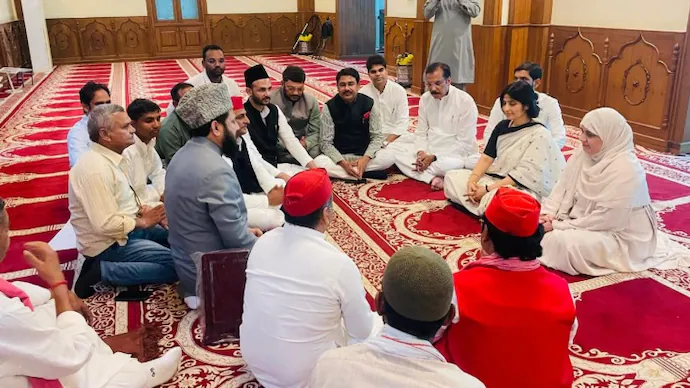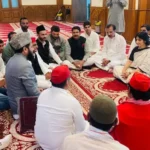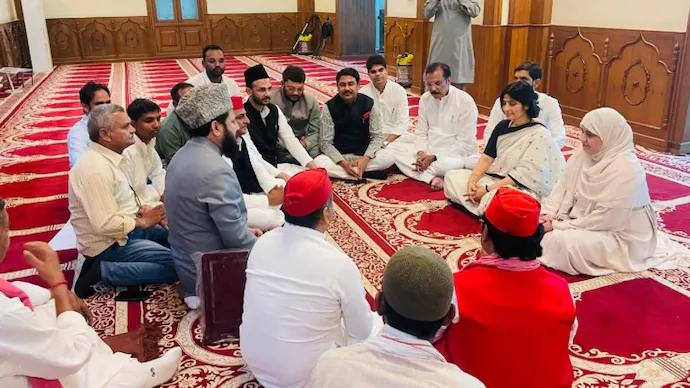
BY MOHAMMAD TARIQUE SALEEM
A video recently goes viral of Samajwadi Party MP Dimple Yadav visiting the Parliament Street Mosque in Delhi on June 21, without an abaya, sparked a wave of debate on social media. Critics questioned the appropriateness of a woman, especially one not in traditional Islamic attire, entering a mosque. However, it is important to view this incident not through the lens of outrage, but with compassion, context, and Islamic guidance from the Qur’an and Hadith.
Dimple Yadav, known for her grace, humility, and secular spirit, visited the mosque with no intention of disrespect. Her visit symbolized interfaith harmony and political inclusivity, especially at a time when the Parliament was witnessing the passing of the Uniform Civil Code (UCC) Bill a matter of concern for many in the Muslim community. Her silent gesture of solidarity at the mosque should be recognized as a bridge-building effort rather than a provocation.
WOMEN IN MOSQUES : What Do Qur’an and Hadith Say? Islam, at its core, is a religion of mercy, dignity, and justice. Nowhere in the Qur’an is it stated that women are prohibited from entering a mosque. In fact, Prophet Muhammad (peace be upon him) clearly stated in a Sahih Hadith: “Do not prevent the female servants of Allah from going to the mosques of Allah.” (Sahih Muslim, Hadith 442)
ANOTHER HADITH REINFORCES THE SAME IDEA: “If your women seek permission to go to the mosque at night, allow them.” (Sahih al-Bukhari 865). Women regularly offered prayers behind the Prophet (PBUH) in Masjid an-Nabawi in Medina. Islamic tradition has always recognized a woman’s right to spiritual participation in mosques.
WHAT IF A NON-MUSLIM WOMAN ENTERS A MOSQUE ? If a non-Muslim woman enters a mosque, even if unintentionally or without specific Islamic attire, Islam does not permit her to be disrespected, insulted, or humiliated.
THE QUR’AN SAYS: “And We have certainly honored the children of Adam…”
— (Surah Al-Isra, 17:70) – Prophet Muhammad (PBUH) set a high standard of how to treat others, even those from different faiths. When non-Muslim delegations visited the Prophet’s mosque in Medina, he treated them with respect and even allowed them to rest and hold discussions inside the mosque. In another example, the Christians of Najran were permitted to pray according to their own tradition inside the Prophet’s mosque, and he showed no anger or intolerance.
LET THE MOSQUE REMAIN A PLACE OF UNITY : Rather than allowing this incident to polarize opinions, we should embrace the positive message it offers. Dimple Yadav’s visit reflects the spirit of secularism and democratic values, which include respect for all religions. If her presence sparked discomfort, it could have been addressed with kindness and education, not with anger or insult.
As Muslims, we are guided to be ambassadors of peace. Any discussion surrounding women in mosques, Muslim or non-Muslim must be based on Qur’anic ethics and the Sunnah of the Prophet (PBUH), which teach dignity, hospitality, and wisdom. In today’s divisive world, let mosques become spaces of peace and dialogue, not controversy and exclusion.










